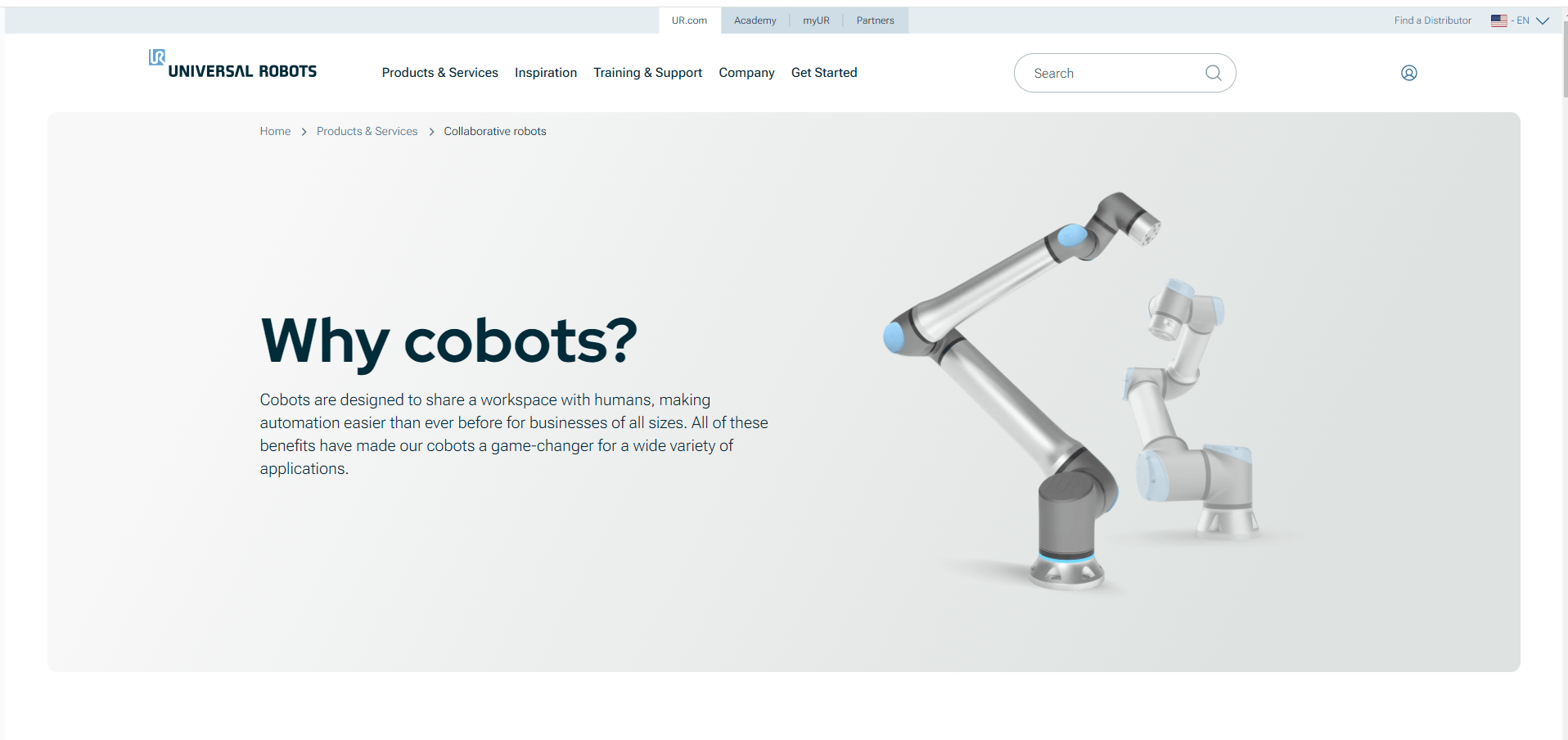- Home
- Industries
- Industrial
- Manufacturing AI Tools for Manufacturing: Use Cases, Tools to Know, & Benefits
AI Tools for Manufacturing: Use Cases, Tools to Know, & Benefits
AI is revolutionizing the way businesses run, including how we create, transport, and store products. AI tools for manufacturing show how this new technology is altering our processes and increasing production.
-
insights from 237,500+ hours of manufacturing marketing experience
Many see a future where robotics and machine learning are part of the process. We will cover the basics of AI for manufacturing, including:
- 4 AI manufacturing tools
- 6 use cases of manufacturing AI tools
- Benefits to using AI in manufacturing
4 AI manufacturing tools available right now
A number of manufacturing companies have already implemented AI technology in their daily operations. A few of the best AI manufacturing examples currently in use are as follows.
1. ClickUp AI

Best for: Project management and team collaboration
Originally, ClickUp AI was just a project management tool. However, the developers have added AI to enhance it.
Today, it is used by manufacturing companies as a manufacturing project planner. AI has improved productivity and quality control through automation of operations. Processing mapping tools can also link strategic discussion with AI-based execution.
2. DataRobot

Best for: End-to-end AI integration
DataRobot offers a full-lifecycle AI platform. It can do predictive maintenance, quality control and even coordinate the supply chain management. The result is improved efficiency and productivity, two main objectives for any management team.
3. Siemens Insights Hub

Best for: Industrial IoT and real-time factory optimization
MindSphere is Siemens’ cloud-based, open IoT operating system that connects machines and physical infrastructure to the digital world. It collects and analyzes large volumes of production data to enable tools like predictive maintenance, quality analytics, energy monitoring, and more.
4. IBM Watson IoT

Best for: Cognitive analytics and decision-making
IBM uses AI extensively in its own companies. However, they have also made products that use AI for their clients, including this nifty analytics and cognitive insight platform.
You can use their IoT for intelligent decision-making, supply chain optimization, and predictive maintenance. Because IBM Watson IoT uses algorithms to break down sensor data, it will also give insights into workflows.
6 use cases of AI tools in manufacturing
Besides robotics, AI has changed the course of manufacturing history in other ways. Here are the top six AI manufacturing examples.
1. Inventory management
AI offers a number of features that are hugely beneficial to inventory management, like:
- Real-time analytics and measurements
- Data enhanced software
- Accurate stock control
- Improved stock prediction
- Automated reordering processes
AI can understand and learn about how your stock changes and then make predictions about what needs to be updated. It can even notify suppliers for you, so you can maintain leaner inventories and minimize over- or under-stock situations.
2. Predictive maintenance
It’s no surprise that AI, which learns, processes, and predicts, is an impactful tool for predictive maintenance. Enhancing maintenance technology with AI tools for manufacturing can show when a machine or equipment is likely to fail and recommend services or preventive measures.
The benefit of the prediction is that you can schedule a planned service rather than an unexpected breakdown. There will be fewer disruptions, and the machines themselves will not undergo breakdown stress, which can increase their life span. Predictive maintenance supported by augmented reality ensures a more efficient manufacturing assembly line, with fewer chances for a total breakdown.
3. Generative designs
Generative design in the manufacturing industry occurs when engineers, designers, and AI come together to create solutions for product designs.
The designer can use the technology to input the design goals for the product, such as the material type, budget constraints, and space or weight limitations. The AI tool will take all that data and then output all the possible designs that meet those criteria.
Each solution will have pros and cons that the client or designer can review and adjust to accordingly. The process can then start from the beginning again with new parameters, or an end result will be finalized.
4. Cobots for product automation

Collaborative robots, or cobots, are the beginning of robotic automation being accessible for smaller and medium-sized companies. Cobots are usually given jobs that are potentially dangerous for humans or dirty.
5. Digital twins technology for virtual simulations
Another area in which AI is enhancing manufacturing is digital twins. A digital twin replicates a physical asset in a virtual environment, including its behavior, functionality and features. It uses a number of technologies, including AI.
Digital twin technology uses machine learning algorithms to process large quantities of sensor data and identify data patterns. Artificial intelligence and machine learning (AI/ML) provide data insights about performance optimization, maintenance, emissions outputs, and efficiencies.
AI comes in as it can analyze large amounts of sensor data from the digital twins. From the data, you can identify patterns and give insight into performance optimization.
6. Project management with enhanced AI
Project management technology has also evolved with AI. In manufacturing, where you have to stick to deadlines and have a number of different teams and departments collaborating, it makes sense for everyone to be on the same page.
AI has been introduced into project management by giving predictive timelines and notifications and automating certain tasks.
Benefits to using AI in manufacturing
Now that we have looked at how AI tools for manufacturing, let’s look at the benefits AI technology has brought. Here are a few of the top ones you can expect:
- Energy efficiency: Newer technology, including AI, must uphold the latest regulations for energy efficiency. However, AI can also optimize energy by analyzing data from various parts of the production process. It can suggest or even automate adjustments to reduce every consumption without compromising output quality.
- Enhanced safety: Machine learning can absorb large amounts of data to make predictions and modifications. This procedure can be applied to the manufacturing system and the worker’s environment. AI software can monitor workplace conditions and predict potential safety issues. It can propose safety protocols for all hazardous situations.
- Agility and scalability: Companies can respond quicker to changes in the market or customer demands due to AI’s ability to predict and sense changes in real time.
Level up your manufacturing marketing plan with AI
Integrating AI into your marketing workflows can have the same effect as updating your in-house processes. If you want a partner in choosing the right AI software, look no further than WebFX.
Our team of 500+ marketing experts will leverage AI programs to evaluate your marketing campaigns and find revenue-driving optimizations. With this technology, we can transform your marketing approach while saving time and getting more results out of your investment.
Want to learn more? Contact us online today!
We Drive Results for Manufacturing Companies
- 500+ experts in manufacturing
- You get a team dedicated to your success



We Drive Results for Manufacturing Companies
- 500+ experts in manufacturing
- You get a team dedicated to your success



Explore our industrial case studies
Read our case studies for a more in-depth look at our results.
Solving key challenges for industrial & manufacturing companies
Our website isn’t driving enough traffic
When prospects look for industrial products online, your website needs to be one of the first results they see so you can maximize your web traffic. Make that goal a reality with WebFX.
We’re not selling enough products
Reach your sales goals with custom digital marketing plans designed to optimize your website and campaigns to maximize your conversions and product sales.

We’re struggling to retain customers
Our team specializes in helping your industrial company implement strategies that build long-term relationships with clients and foster brand loyalty so you can keep your clients coming back again and again.

Our marketing efforts aren’t providing a high return
Leverage the power of data to make smarter marketing decisions that drive a higher ROI for your company instead of relying on gut feelings with our data-driven marketing plans.

